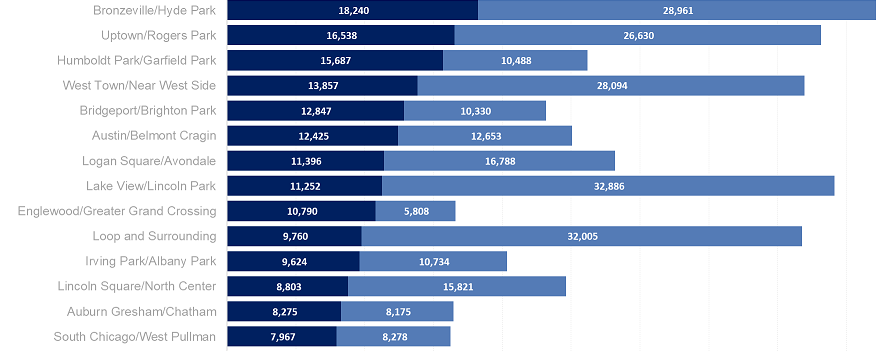Articles tagged 'Affordability'
Guest Blog: The Need for a Collective Approach to Preserving 2 to 4 Unit Housing in Chicago
This guest blog, co-authored by a group of Chicago housing organizations, responds to IHS's recent analysis on the importance of and threats to 2 to 4 unit buildings in Chicago. It emphasizes the disproportionate health and economic impacts of the COVID-19 pandemic across Chicago’s communities of color; the potential implications for the stability of Chicago’s 2 to 4 unit housing stock; and the urgent need for coordinated actions to address existing needs of families that rely on the affordability that 2 to 4 flats provide.
How a Plan to Save Buildings Fell Apart
Lee to Sea: Joined-up thinking could create a 45km greenway through Cork City and County
Aldermen Advance Measures to Protect Two-Flats in Effort to Slow Gentrification
Scaled-Back Plan to Legalize Coach Houses, Granny Flats Advances
The pandemic has made it even harder for some Chicago residents to access clean water
Building Community Data Capacity: Developing a Model to Preserve Affordable Housing in Uncertain Times
IHS provides data and technical assistance for Communities United (CU)— a community-based organization based in Albany Park which also serves Austin, Belmont-Cragin, Roseland, and West Ridge, on the Northwest, West, and South sides of Chicago— and its housing initiative Renters Organizing Ourselves to Stay (ROOTS). This blog highlights some of this work and how it has been used by Communities United.
Hyde Park residents’ jobs among the most at risk from COVID, study finds
New coalition takes aim at displacement
Examining the Neighborhood-Level Housing Impact of COVID-19 in Chicago: A Preliminary Analysis
To support Chicago-area housing and community development practitioners as they think through the need for housing and place-based interventions, the Institute for Housing Studies (IHS) has created a new analysis to highlight the potential economic impacts of the COVID-19 crisis on households with workers in occupations more vulnerable to mass layoffs.


